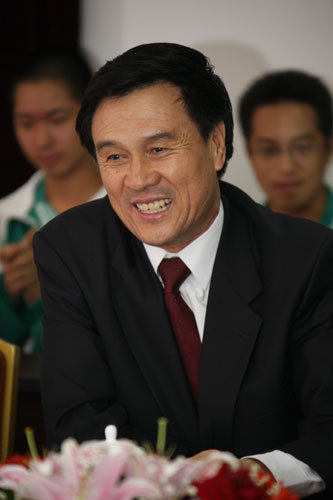Minister prepares to solve ethnic challenges
China faces new challenges in managing ethnic affairs posed by rapid urbanization and social transformation, as more ethnic migrant workers head to cities for a better life, a top official said.
 |
|
?Yang Jing is the Minister of the State Ethnic Affairs Commission. |
"As society is in a period of transformation, ethnic affairs in the country are characterized by new features and problems," Minister of the State Ethnic Affairs Commission Yang Jing said in an interview with China Daily.
"These problems, including the management of and public service for urban ethnic groups, unbalanced development among ethnic autonomous areas and disputes caused by different customs, may bring about very negative social influences if neglected," Yang warned.
More than 12 million people from China's ethnic groups are now working in cities as migrant workers, which represents 10 percent of the total ethnic population in China, according to statistics from the commission.
Zhang Ruopu, deputy chief of the commission's regulation and policy department, earlier told Beijing-based Caijing magazine that more than 70 percent of incidents related to ethnic affairs happen in urban areas.
China has been providing financial aid and preferential policies to help ethnic people shake off poverty.
From 2001 to 2010, the central government allocated more than 310 billion yuan ($46.7 billion) to the Tibet autonomous region, or 110,000 yuan per capita, according to official statistics.
Of every 100 yuan the Tibet regional government spends, 90 yuan comes from the central government.
Yang said the total GDP of eight ethnically-concentrated autonomous regions and provinces in China reached 3.4 trillion yuan in 2009, a year-on-year rise of 13.1 percent.
Along with financial aids, the country also provides preferential policies in medical care, social insurance and education in an attempt to ease social disputes caused by the widening wealth gap.
"The basic medical care system and basic social insurance system cover 98.5 percent of ethnic people," the minister said.
Children from low-income ethnic families are given priority to enjoy free compulsory education and housing subsidies, he added.
Yang said the population living under the absolute poverty line (an annual income under 1,196 yuan) in the countryside of the eight ethnically-concentrated autonomous regions and provinces dropped to 14.5 million in 2009, almost 50 percent less than in 2001.
Despite the achievements, Yang admitted the country still faces difficulties in the development of ethnic areas, such as a mounting income gap and insufficient infrastructure.
To provide legal guidance for work concerning ethnic groups, Yang highlighted the importance of "accelerating the legislative process".
The draft amendment to the Regulations on Work for Urban Ethnic Groups, the country's top regulation on ethnic relations in urban areas launched in 1993, has been listed on this year's legislation agenda of the State Council.
 0
0 






